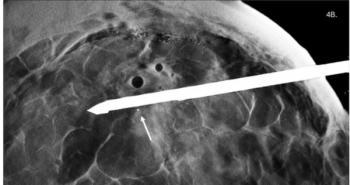
Case Study: PET Imaging with Amyvid for Alzheimer’s
Video: Roberto Soto, MD, of Precision Imaging, shows a recent PET imaging case using Amyvid, recently approved for evaluation of Alzheimer's.
Roberto Soto, MD, founder and medical officer of Precision Imaging, shows a recent PET imaging case using Amyvid. The radioactive diagnostic agent Amyvid, or florbetapir, was FDA-approved in April for use in the evaluation of Alzheimer’s disease.
In this case, the patient also had an MRI, as seen in the top row. The studies were fused to show additional information. This is a negative Amyvid case, meaning no amyloid plaque was detected and there was a reduced likelihood the impairment is due to Alzheimer’s.
Newsletter
Stay at the forefront of radiology with the Diagnostic Imaging newsletter, delivering the latest news, clinical insights, and imaging advancements for today’s radiologists.














